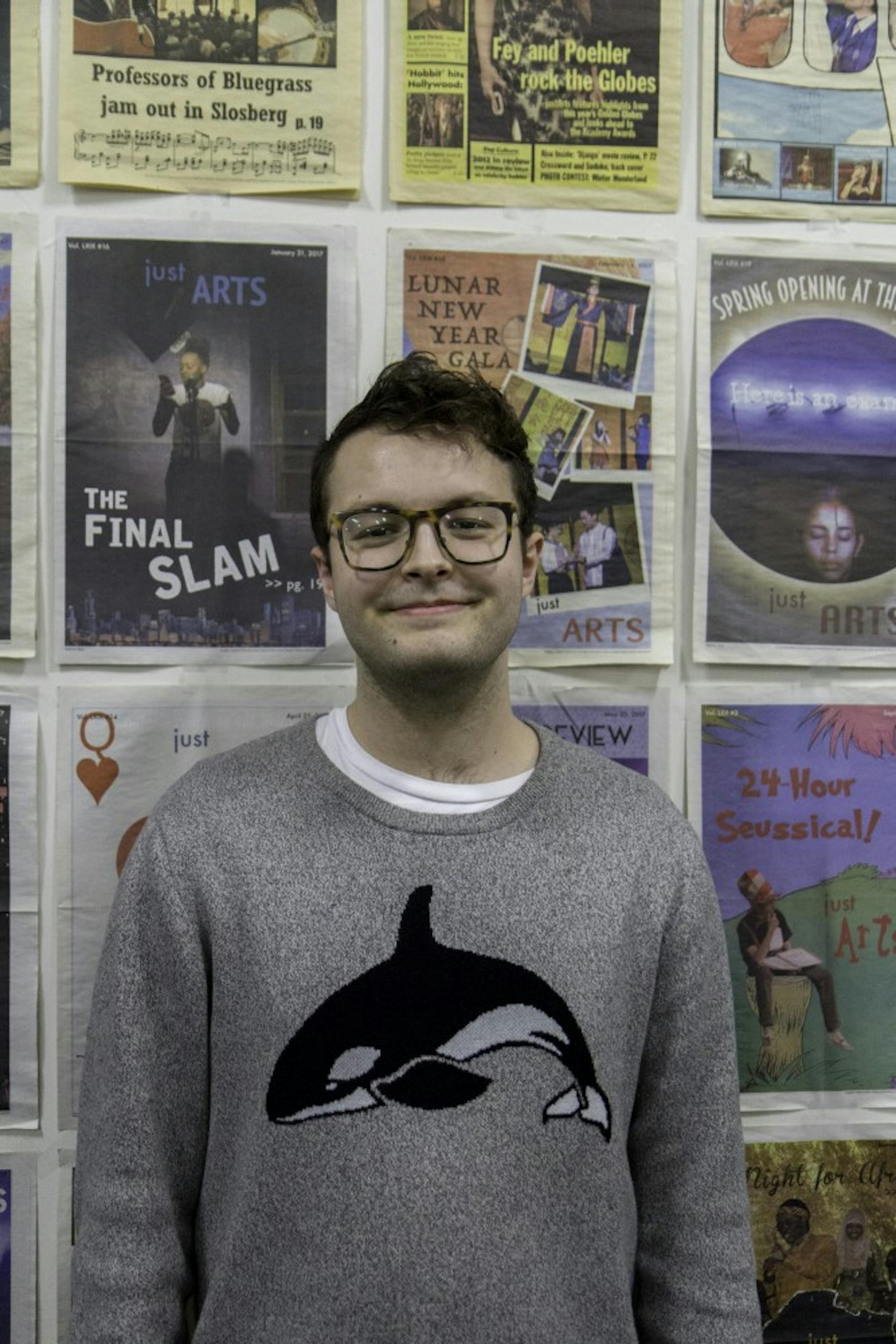Interview with Gabe Walker '19
JustArts: Why don’t you tell me a little bit about your experience directing?
Gabe Walker: This is the sixth show I’ve directed at Brandeis. [I] started my sophomore [year] when I directed “Urinetown” through the UTC, and I’ve done a bunch of very different projects since then.
JA: What was the most rewarding aspect of the process?
GW: We would sit for two, three, four hours just pulling apart each and every word. … When you’re doing all of that nitty gritty work and you finally get to just sit back and watch it on a stage watch your actors do something … in a way that you never would have expected ,… suddenly the whole thing becomes clearer. I don’t think there’s one individual thing, but [rather] watching each of my actors go through those kinds of discoveries. … Those four hours of work lent themselves to maybe fifteen seconds of stage time, but to see those results is always really satisfying as a director.
JA: What led to the decision to have a choreographed dance at the beginning of the play?
GW: First of all, I think it’s always nice, especially when you’re doing Shakespeare, which is something that a lot of audience members … might not be very used to … It was a nice way of setting them in the world of the play before it actually began. Also, I love visual pieces and choreography and the idea of getting to start the tempo of the piece with this bang — this big dance number. I think it lent a lot of energy to the beginning of my play… It also helped establish the rules of the world. … To see how the actors were entering and exiting … gave the audience a sense of how I would be using that space during each scene.
JA: How — if at all— is directing a Shakespeare play different from directing another straight play?
GW: Again, with Shakespeare, you’re forced to do so much more text work … in addition to [understanding] intentions and breaking it up rhythmically into units. You kind of have to act as a translator for your actors, too. … Also, scansion is a big part of it. … Finding the stressed and the unstressed beats and working within iambic pentameter, … and making sure that the poetry is all coming across. At the end of the day, if you’re not interested in working with … old text and making it comprehensible [to] a modern audience, why are you doing this? … That being said, I think it’s a really good exercise in directing newer plays because there’s no reason why you shouldn’t also be doing all of that digging into newer plays. … You need to be doing all of that intention work, to still be breaking it up into units, understanding why they say [what] they do, just so you can really get into what the playwright is intending.
JA: Is there anything else you would like to add?
GW: Thank you to my cast and prod staff for making it such a wonderful experience. Directing Shakespeare can be an utter nightmare if you don’t have people who are willing to go on that journey with you and be a workhorse. … There’s only so much work we can actually do in rehearsals and if actors aren’t working … outside of the room, then you’re not going to get it all done. Fortunately, they all did. I owe a lot of the smoothness of the process and the success of the show to them.
—Maya Zanger-Nadis




Please note All comments are eligible for publication in The Justice.